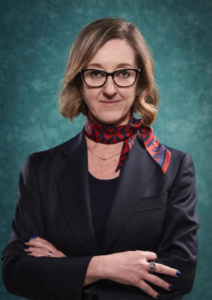
Quantum solution to rusty equipment? USC team’s innovative approach wins prize
A USC team has won the 2024 Quantum Computing Challenge. The winners were announced recently at the Q2B conference in California’s Silicon Valley.

Rosa Di Felice, professor of physics and astronomy and quantitative and computational biology at the USC Dornsife College of Letters, Arts and Sciences, and Naman Jain, a master’s degree student at the USC Viterbi School of Engineering, took top honors in the “Smart Coating” track of the competition. Their project focused on quantum computing to find ways to inhibit or prevent corrosion in materials used in the transportation industry.
The duo — the smallest team among the contest finalists — took an innovative approach that could lead to significant advancements in protecting aircraft and automobile surfaces from corrosion, a major concern for manufacturers. Their work demonstrates the potential of quantum computing to revolutionize materials science and engineering across the transportation sector.
The team’s success — which includes a €30,000 prize — also highlights the growing importance of quantum computing in solving complex industrial problems. Quantum computers have the potential to perform certain calculations exponentially faster than classical computers, making them particularly suited for tackling challenges in materials science, optimization and simulation.
In the automotive and aerospace industries, quantum computing could accelerate the development of new materials, improve manufacturing processes and enhance the design of complex systems. This technology may lead to more efficient and durable vehicles and aircraft, ultimately benefiting consumers and the environment.
For Di Felice, the project marked a return to her early days as a physics scholar. “Surface physics is what I did as a PhD student 30 years ago,” she said, noting that their approach could be applied more broadly, such as in designing catalysts to make production of manufacturing materials more efficient.
About the contest
The Quantum Computing Challenge launched in 2023 to encourage quantum computing researchers to advance solutions from the lab to practice in the transportation field. A jury of quantum computing experts teamed up with challenge sponsors Airbus and the BMW Group to select five winners from more than 100 submissions. Contestants were given access to quantum resources through Amazon Web Services.